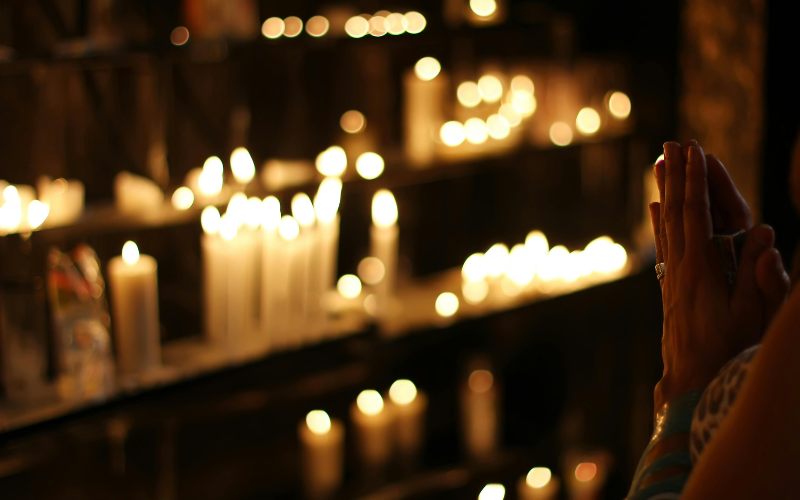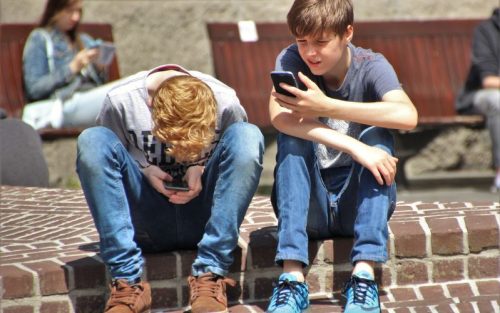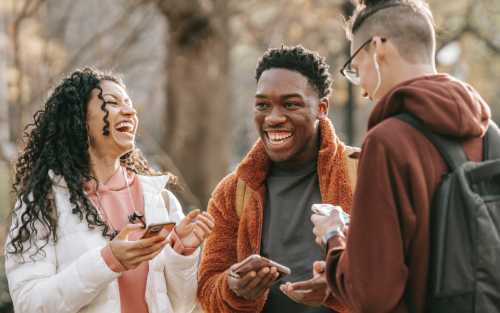
When delivering an inclusive Relationships and Sex Education (RSE) class, it is vital to be respectful of all the diverse religious and cultural beliefs in your school, classroom and community.
In their Statutory Guidance for RSHE, Ofsted discuss that:
Religious background of all pupils must be taken into account when planning teaching, so that the topics that are included in the core content in this guidance are appropriately handled.
It’s crucial that schools comply with the relevant provisions of the Equality Act 2010, under which religious beliefs are amongst the protected characteristics.
Here are some tips from our Life Lessons team around creating an inclusive environment for all religious and cultural beliefs during RSE lessons.
Cultural Sensitivity
Being sensitive to religious and cultural beliefs are just a few of many reasons why it is vital to create safe spaces during RSE lessons. In these safe spaces you can then foster an open and non-judgemental environment. It is vital to emphasize that beliefs and values can vary amongst individuals and cultures. Encourage students to share their own perspectives while respectfully listening to others points of views and experiences. Making the classroom environment a space for respectful dialogue is key for fostering cultural sensitivity during RSE lessons.
To help schools create safe spaces for RSHE/PSHE classes, the Life Lessons team have developed a bitesize CPD video that’s available for school partners explaining the best ways to create safe spaces in the classroom to effectively facilitate discussion.
Diverse Curriculum
Your RSE curriculum should include a variety of perspectives to ensure you are not focusing on one particular cultural and religious viewpoint.
Our Life Lessons resources feature videos from a range of different young people all from different cultural backgrounds with different beliefs. We are proud that our resources showcase diverse relationships, family structures, and cultural contexts. This allows students to see their own identities, viewpoints and beliefs reflected in different lessons.
Guest Speakers
A great way to bring different perspectives into your classroom is to consult with guest speakers or experts from different cultures and religious backgrounds. In our Life Lessons resources we have interviewed a range of different experts on different topics of relationships and sexuality.
Life Lessons’ expert video library also supports the delivery of RSHE topics with a neutral viewpoint. It’s important to provide young people with facts and laws for each topic so that they are able to form their own opinions.
Customisable Content
A key aspect to inclusive RSE lessons is to ensure your content is customizable which allows flexibility when you are teaching.
Our Life Lessons resources are created to be adaptable for our school partners so they can adapt them to align with various cultural and religious perspectives. We also put diversity flags on all our curriculum lessons in order to keep our resources mindful of different faiths and beliefs and to allow our schools to adapt RSE approaches based on their knowledge of students, families, communities and religious and cultural beliefs.
Parental Involvement
Part of successful RSE delivery includes keeping parents informed on topics that you will be covering in RSE lessons. It is important to also be understanding and respectful of any requests for exemptions based on religious and cultural beliefs.
For our Life Lessons partners we have a parent transparency presentation which schools can amend and use to support parent communication. We also have a parent page on our website that can be shared with parents who want to know more about your school’s RSE curriculum provider.
Respectful Approach
A key element to inclusive RSE lessons is to approach topics with sensitivity and empathy. Part of ensuring your lessons are inclusive is to acknowledge that beliefs vary and that your aim is to provide information, not impose particular views.
It’s important to ensure staff feel confident about the facts around each topic and understand the importance of remaining neutral with their own viewpoint when delivering these resources so that young people are receiving all the info and not a biased viewpoint.
Cultural Events and Celebrations
A great way to include different beliefs and religions is to incorporate cultural events and celebrations into your curriculum. Here are a few ideas:
- Celebrate World Religion Day by encouraging people to wear traditional clothes or bring a significant item that they associate with their religion.
- Get them to interview a family member about their religion or spirituality.
- For people who do not have a religion ask them to identify where they feel they fit into a community e.g. football or a club or member of a local dance company.
Remember that the key to creating a safe atmosphere where students feel heard, respected and valued regardless of their cultural or religious beliefs is vital to successful RSE lessons.
If you want to hear more about how Life Lessons can assist you with your RSE curriculum, then please get in touch with our team today.
Book a call to hear more about Life Lessons.



